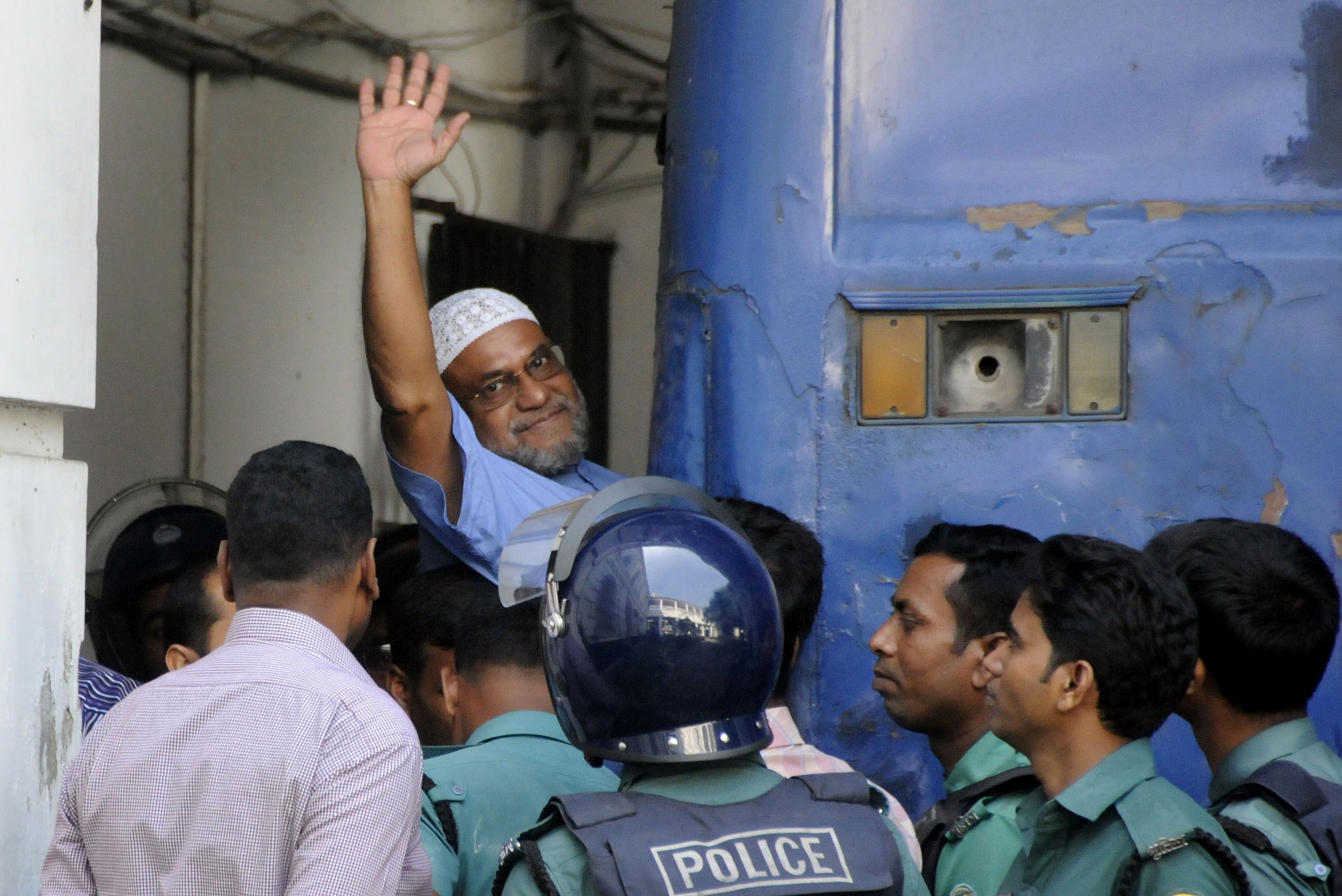
Bangladesh's top court has upheld a death sentence for the main backer of the country's largest Islamist party after he lost his final appeal against execution for crimes committed in the 1971 war of independence.
Mir Quasem Ali, a leader of the Jamaat-e-Islami party, was attempting to overturn a verdict the country's tribunal for alleged war crimes in the conflict handed to him more than two years ago.
"Now it is only a matter of time to execute the verdict, unless he seeks clemency from the president," the country's attorney-general Mahbubey Alam said. Five judges, led by the country's chief justice, made the decision to reject the appeal.
Ali, who made his fortune in shipping and property, is accused of numerous crimes including the murder of an independence fighter in the conflict that saw Bangladesh separate from Pakistan.
As many as half a million people died in the conflict that saw Ali's party side with Islamabad and against those who wished to split from Pakistan.
The 63-year-old potentially faces execution in the coming weeks unless he receives a presidential pardon.
Bangladesh has executed five other opposition leaders, including Islamists, for alleged war crimes by hanging since 2013. They received no presidential pardon, but their families did not request such a pardon as they did not wish to give the criminal proceedings any legitimacy.
Supporters of Bangladesh's opposition parties believe that the war crimes tribunal is a bid to silence dissent in the country, and to remove the leaders of not only Ali's party but the opposition Bangladesh Nationalist Party (BNP).
Ali's party is outlawed from running in Bangladesh's election process and it reacted to the rejection of his appeal as "political vengeance" for charges they say are "false" and "baseless." Rights groups have criticized the war crimes tribunal for not meeting standards of international law.
The decision was made just a day after U.S. Secretary of State John Kerry visited the country's capital, Dhaka, to call on the ruling government to "live up to the core values of democracy" if it is to quell extremism. The country has been hit by many extremist attacks in recent months, including a cafe siege in Dhaka last month that left 22 people dead.
Uncommon Knowledge
Newsweek is committed to challenging conventional wisdom and finding connections in the search for common ground.
Newsweek is committed to challenging conventional wisdom and finding connections in the search for common ground.
About the writer
Jack is International Security and Terrorism Correspondent for Newsweek.
Email: j.moore@newsweek.com
Encrypted email: jfxm@protonmail.com
Available on Whatsapp, Signal, Wickr, Telegram, Viber.
Twitter: @JFXM
Instagram: Read more
To read how Newsweek uses AI as a newsroom tool, Click here.








